If it’s been raining a lot, you should expect your chicken coop to be muddy, especially when you don’t have good preventive measures.
The chicken manure, bedding, and feeds get all mixed up, which causes not only a foul smell, but also an awful mess!
To prevent this from happening often, you should know how to keep a chicken coop dry.
If you’re curious about the steps necessary to do this, then keep on reading!
5 Ways To Keep Your Chicken Coop Drier
There are lots of preventive measures you can do to keep your chicken coop free from any dirt and mud. Of course, there are times wherein these are inevitable, but preventing them is still better because it’ll save you lots of time!
These are the most recommended tips to keep your chicken coop dry.
1. Fit A Roof
Chicken coops need a roof because it guards the chickens against nocturnal predators. They also need it as a cover from precipitation. You don’t want your chickens and their nests to get soaked whenever it’s raining and snowing, right?
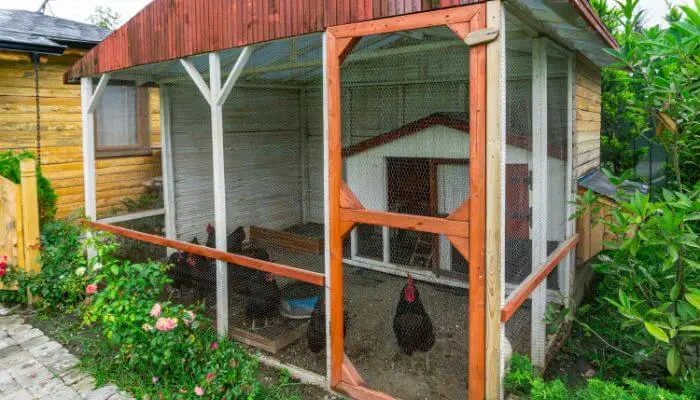
Make sure that the height of the ceiling and the roof are just right so it’s comfortable for you and your chickens.
2. Put Your Chicken Run in an Area With Good Drainage
Why not choose a spot where there’s good drainage? You want to avoid any floods so the location should be well thought out. You can also add soil about three inches deep that’s topped with grass seeds.
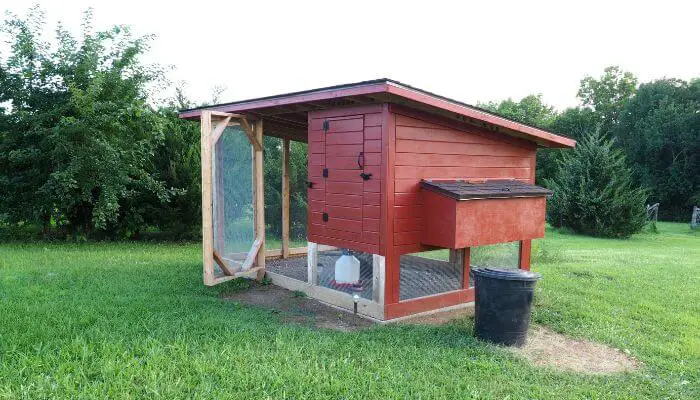
The previous step’s optional if you have a grass patch with proper drainage already. It’s preferred to place the chicken run in an area with grass because chickens are foragers.
Good drainage reduces the chances of muddy puddles as well. Your chickens will appreciate their chicken run so much more!
3. Plant Trees and Other Plants Around The Coop
Trees and plants can absorb hundreds of gallons of water daily. We can depend on them when it’s raining because they’ll absorb a lot of water.
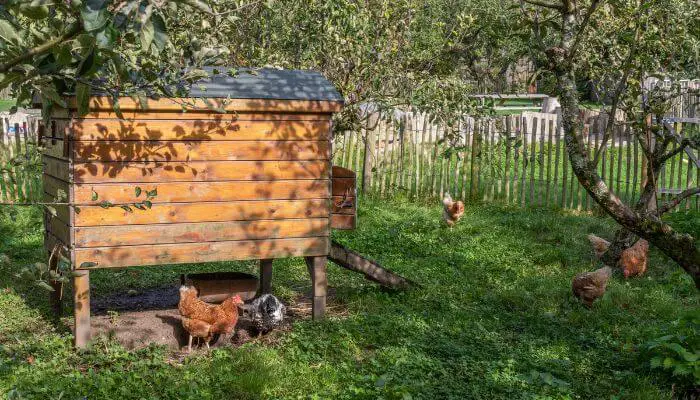
Here are some plants that are good at absorbing water:
- Comfrey
- Lavender
- Millet
- Sunflowers
- Thyme
- White clovers
- Any easy-to-grow greens, such as lettuce and beet
However be sure to avoid these plants due to their potential toxicity which can be harmful to your chickens:
- Daffodils
- Daphne
- Foxglove
- Honeysuckle
- Hydrangea
- Tomatoes, potatoes, eggplants, and their family
- Tulips
Some of the most effective trees for water absorption include; Moringa, Banana, Bamboo, Papaya, and Guava trees.
Some plants also serve as a source of protein for your chickens, so you should definitely start planting them!
Sunflower seeds, lettuce, and Comfrey are just a few examples to consider.
4. Ensure There Is Good Sun Exposure
Chicken coops don’t necessarily need a direct source of sun, but it’s better if you place your chicken coop and chicken run in an area where there’s enough sun exposure.
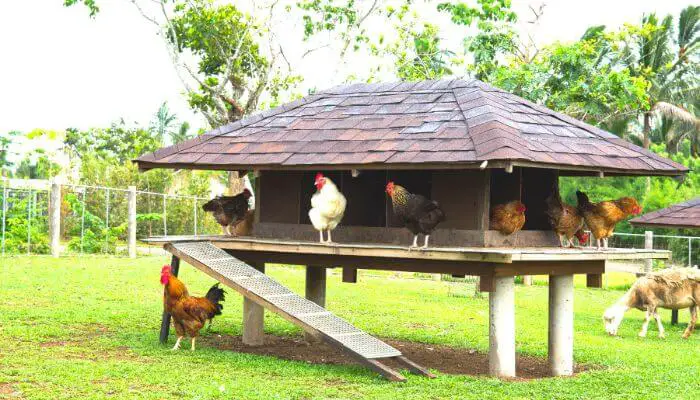
Your chickens need a spot where they can bask in the sun. Sunlight stimulates your hens’ ovaries which helps begin the egg-laying process.
Additionally, the sun speeds up the drying process of the coop whenever it gets soaked during the rainy season—which prevents mud from forming.
5. Use Wood Chip
Wood chips are the perfect material you can use for your chicken coop’s floor surface. They’re sustainable and environmentally friendly because they break down over time. Replacing them is pretty easy too!
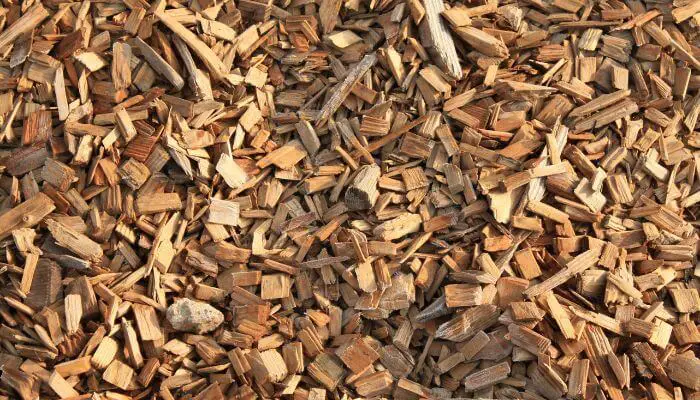
Most wood chips are okay, but it’s advised to use the hardwood variant as it’s the least susceptible to wood-grown spores.
In addition, there are other materials you can use, but they’re less effective than wood chips:
- Pine needles
- Sand
- Sawdust
- Straw
Some of these materials, such as sawdust, are too fine, but they still do the job of absorbing water. It’s just that wood chips are better because they absorb and retain moisture better than the alternatives.
Why a Damp Chicken Coop Is a Problem
The environment of a chicken coop becomes harsher when it’s damp. It becomes a breeding ground for bacteria, which can lead to infections that your chicken can get. That’s because parasites and bacteria alike survive better in humid environments.
Your chickens’ growth is also affected by this. Chickens don’t thrive in a humid environment and as such, they can’t take in the nutrients that they need, which leads to weight loss.
Lastly, egg production slows down because hens don’t like laying eggs when it’s humid. The damp surface makes them feel cold which turns them off.
